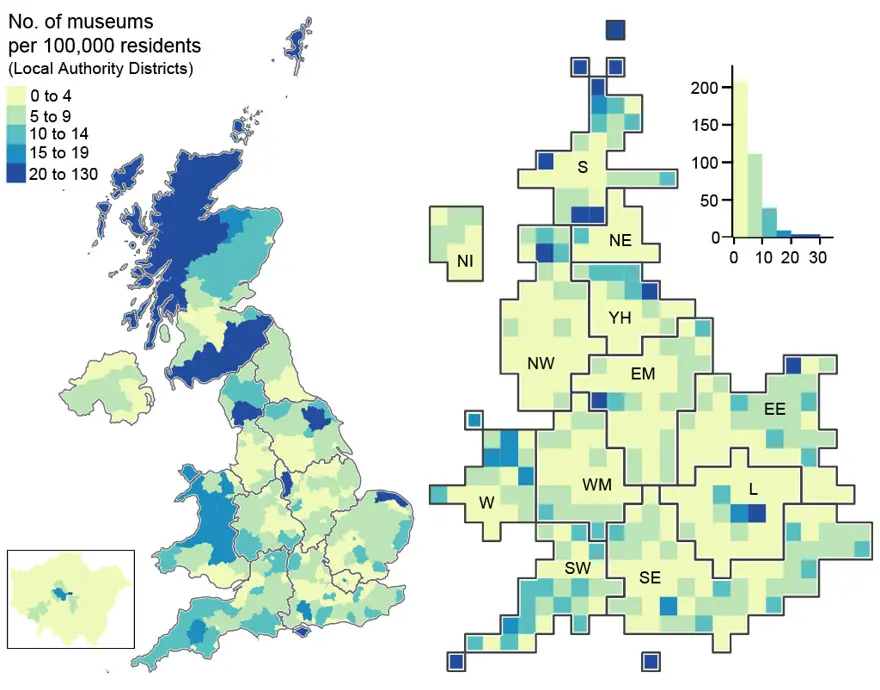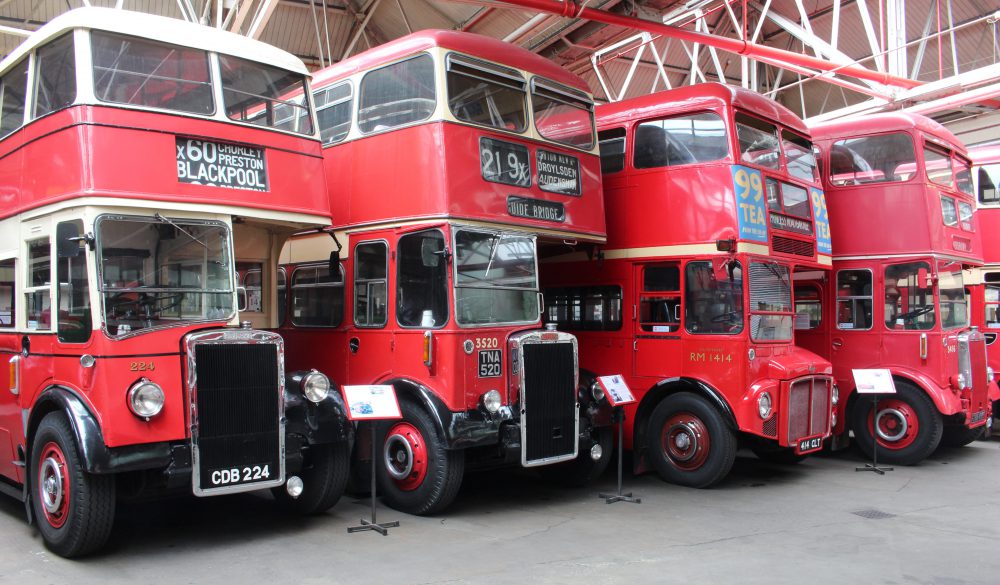Mapping Museums articles are like buses. You wait patiently for ages, and then three come along at once. We’ve provided the abstracts here and any interested readers can click on the links below for a full text copy.
Understanding and Managing Patchy Data in the UK Museum Sector
Fiona Candlin and Alexandra Poulovassilis
It is well accepted that the museum sector has a longstanding problem with data collection and management. This article begins by exploring problems with gaining access to data, poor archiving and coverage, and the absence of data. We then explain how the Mapping Museums research team set out to remedy the lack of longitudinal data on the UK museum sector in the period between 1960 and 2020. Initially we collated and supplemented existing information on UK museums but it was impossible to fill some gaps or resolve some inconsistencies in the data. Here we discuss how we designed a database that was sensitive to the patchiness of the material, and that could model uncertain and absent data in computational terms. To close, we briefly comment on how our data enables research on museum history and on how the problems with data collection in the sector might be remedied in the longer term.
https://www.tandfonline.com/eprint/8BXPW7CUQ3IMXXQGS7D7/full?target=10.1080/09647775.2019.1666421
The Missing Museums: Accreditation, surveys, and an alternative account of the UK museum sector
Fiona Candlin, Jamie Larkin, Andrea Ballatore, and Alexandra Poulovassilis
Surveys of the UK museum sector all have subtly
different remits and so represent the sector in a variety of ways. Since the
1980s, surveys have almost invariably focused on accredited institutions,
thereby omitting half of the museums in the UK. In this article we examine how
data collection became tied to the accreditation scheme and its effects on how
the museum sector is represented as a professionalised sphere. While is
important to understand the role of surveys in constructing the museum sector,
this article also demonstrates how the inclusion of unaccredited museums
drastically changes the profile of the museum sector. We outline the inclusive
research methodology of the Mapping Museums project team and compare our
findings with those produced when a survey is limited to accredited museums. In
so doing, we sketch out an alternative, heterogeneous version of the UK museum
sector and make recommendations based on that evidence.
https://www.tandfonline.com/eprint/CRDWGTPUIC2FQFYXYWYT/full?target=10.1080/09548963.2019.1690392
Creating a Knowledge Base to Research the
History of UK Museums through Rapid Application Development
Alexandra Poulovassilis, Nick Larsson, Fiona Candlin, Jamie Larkin, and Andrea Ballatore
Several studies have highlighted the absence of an integrated comprehensive dataset covering all of the UK’s museums, hence impeding research into the emergence, evolution, and wider impact of the UK’s museums sector. “Mapping Museums” is an interdisciplinary project aiming to develop a comprehensive database of UK museums in existence since 1960, and to use this to undertake an evidence-based analysis of the development of the UK’s museum sector during 1960–2020 and the links to wider cultural, social, and political concerns. A major part of the project has been the iterative, participatory design of a new RDF/S Knowledge Base to store data and metadata relating to the UK’s museums, and a Web Application for the project’s humanities scholars to browse, search, and visualise the data to investigate their research questions. This article presents the challenges we faced in developing the Knowledge Base and Web Application, our methodology and methods, the design and implementation of the system, and the design, outcomes, and implications of a user trial undertaken with a group of experts from the UK’s museums sector.
https://dl.acm.org/doi/pdf/10.1145/3343871?download=true


